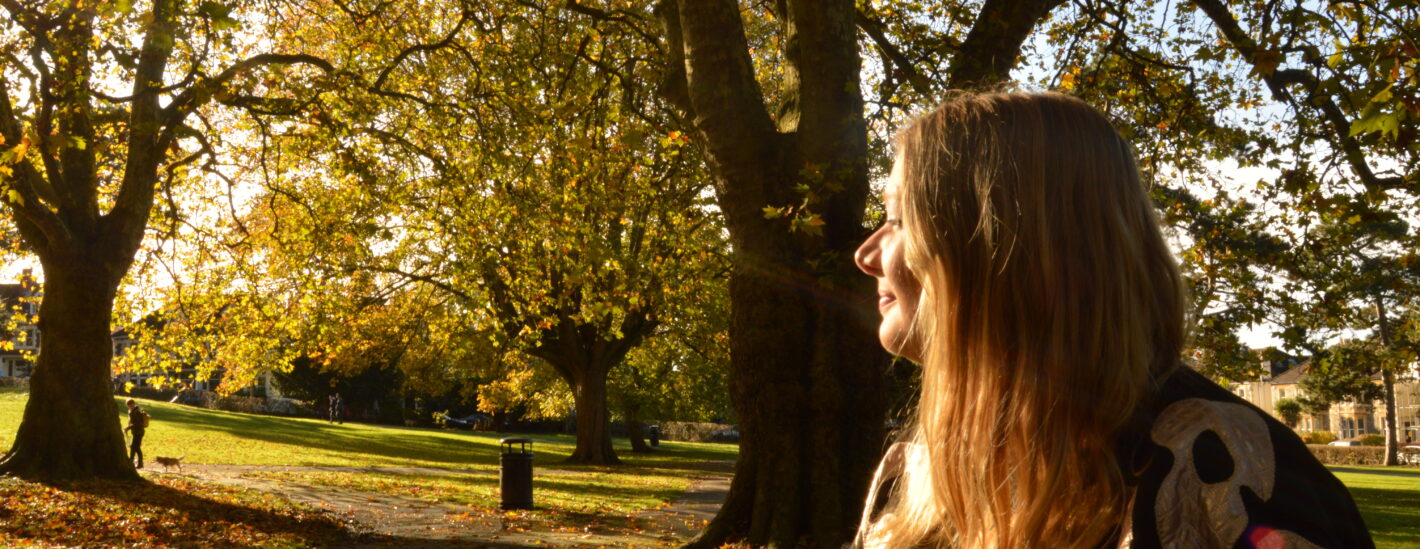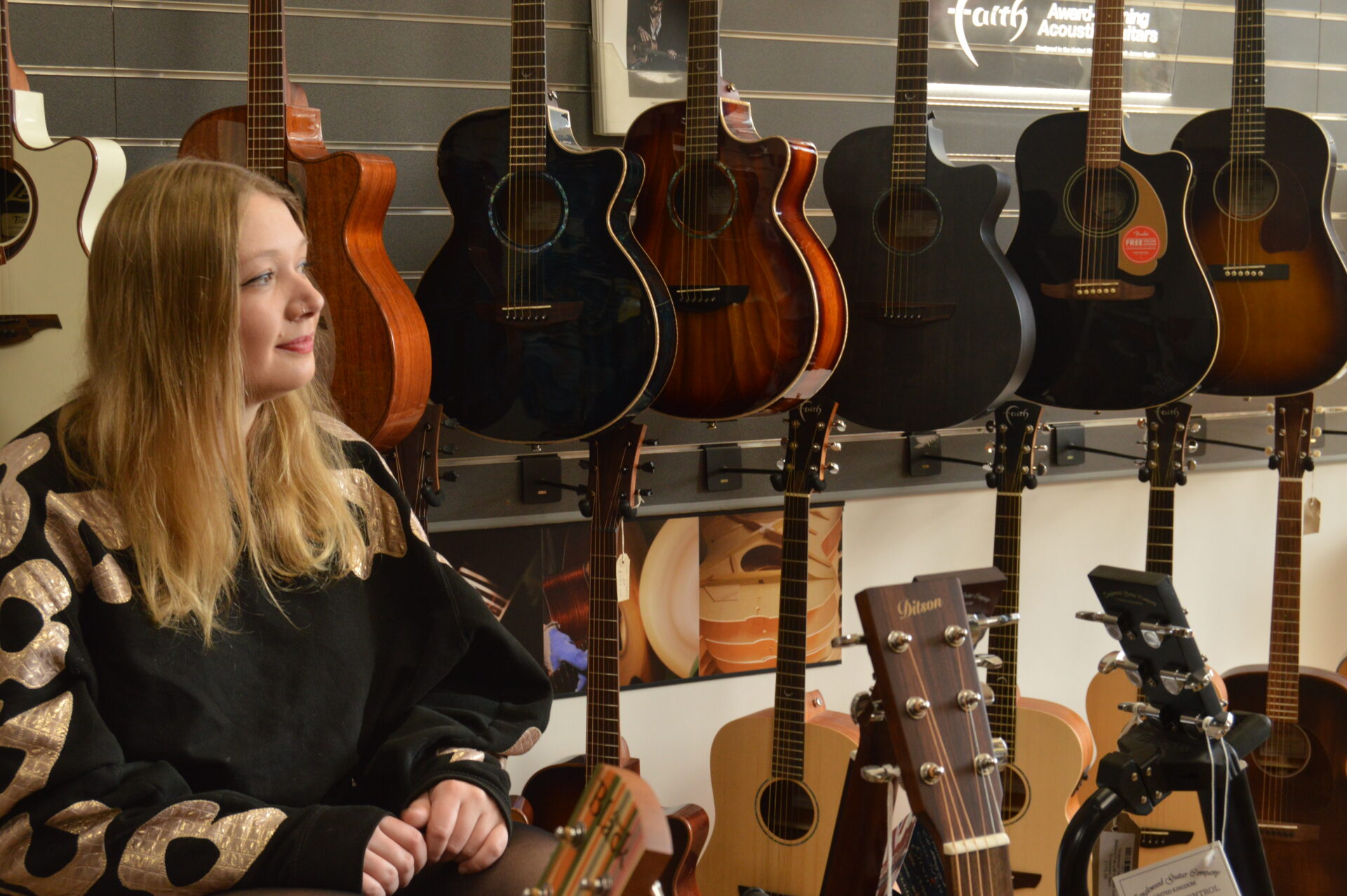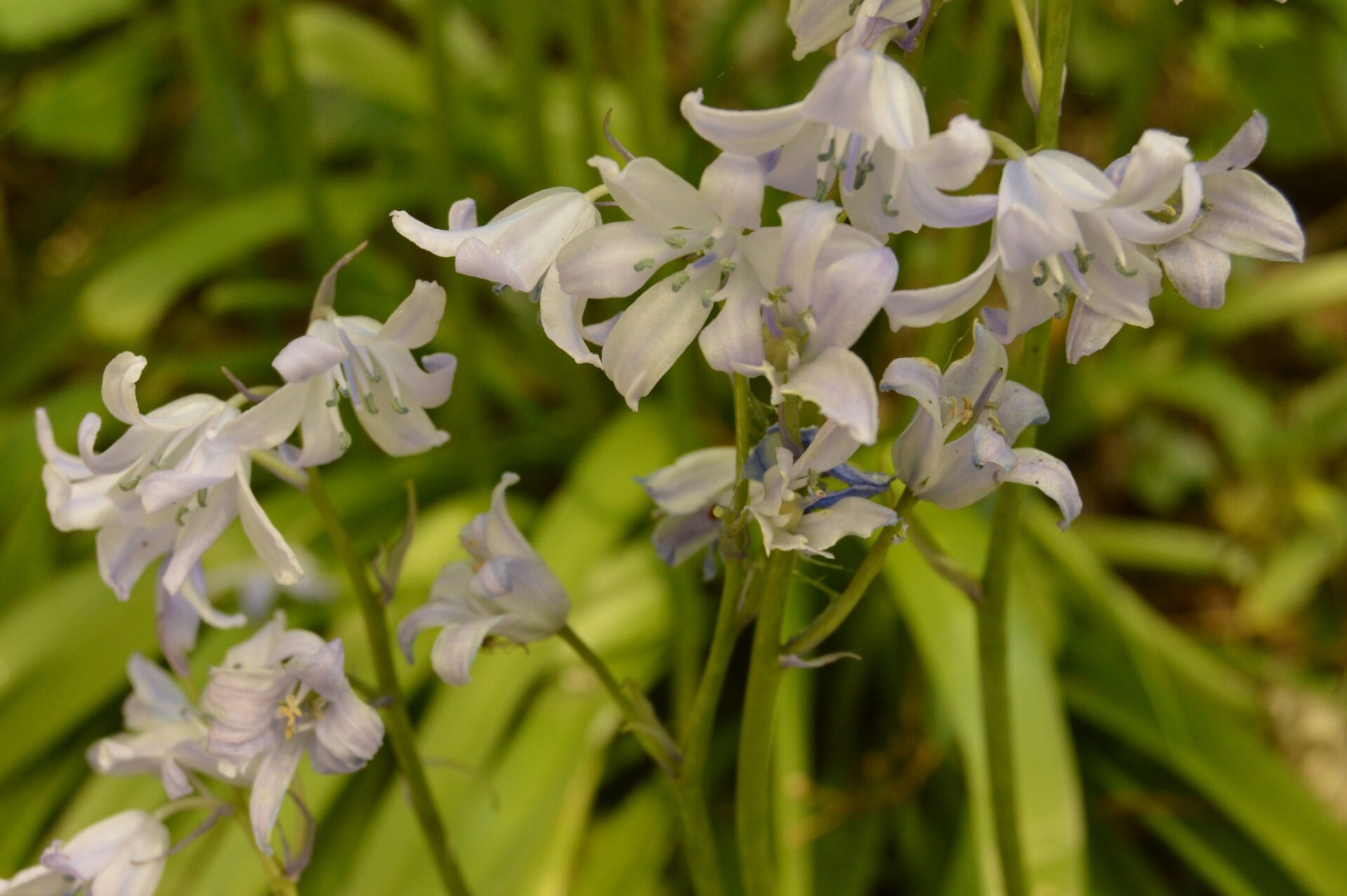Healing in Harmony
 By Resonate | December 8, 2023
By Resonate | December 8, 2023
Words by Rosie Burgess
Photos by Charlotte Wicks
In an industry now worth $26.2 billion, music is often considered to have shaped cultures and societies worldwide for generations. To many of us, music is the first form of communication we understand before we are taught speech and language. It is widely understood that music brings people together and breaks through most barriers to communication; however, only a few people are aware that this is also a tool that health professionals can use. Music therapy uses the universal language of music to offer meaningful interaction to those who have difficulty communicating verbally.
Music therapists work with the natural musicality of each client to offer appropriate, sensitive, and meaningful musical interactions depending on their individual needs. These interactions can include activities like listening to music, singing along to music, moving to the beat of the music, meditating, or playing an instrument. Music therapy can be used for many different purposes, such as helping to develop communication skills, encouraging self-expression, developing confidence, and reducing anxiety.
Typically, a wide selection of easy-to-use instruments is made available in a music therapy session while the music therapist listens carefully and creatively supports people to make sounds. A positive relationship can develop through sharing sounds and music, bringing opportunities for new ways to communicate. Music therapy does not require any previous experience with music or treatment, making it a tool accessible to everyone.

Speech and language therapist Rysha worked as a musician for nine years until she entered the private healthcare sector working with dementia patients. “I have just been given my first post in a hospital on a stroke ward, with my role being focused on acute stroke rehabilitation.” While working as a musician, Rysha discovered a deep passion for music therapy after she had cared for two members of her family with dementia. In both cases, music was the final interest and ability she observed in both family members before they passed. “One of them could only sing/hum nursery rhymes before they passed, and one enjoyed dancing and listening to music until the end. I observed first-hand the joy on their faces when music was on. I observed their well-being improving from music, and their faces changed from confusion to a sense of grounding in both cases.”
When working in private health care, Rysha looked after a lady for five years and was heavily involved in music in her care. This was through going to concerts, playing and singing music together, sight reading, listening, and singing to songs. When this lady was confused, Rysha used music to ground her and observed the incredible power music can have on a person with dementia. “This inspired me to incorporate music into health care, so I wanted to study speech and language therapy.”
While studying speech and language therapy, Rysha also learnt about the power that music can have on people with stammers, non-verbal children, people with disabilities and people who have had a stroke. Although there is research in these areas, Rysha strongly believes more is needed. “My desire is to change this, add to the research, and physically change speech therapy to incorporate music in therapies nationally.”

As music and communication are closely linked, a lot of research supports that exposure to music from an early age is beneficial for communication development. When asked whether music can develop communication, Rysha stated that lyrical music can help a person learn a language more effectively.
“Music has a profound effect on the brain. Why are people who suffer from strokes able to sing music when they are not able to speak?”
In our brains, we use the language centre to appreciate music, which spans both sides of the brain (even though language and words are interpreted in the left hemisphere while music and sounds are interpreted in the right). Music can be an essential part of language development because many parts rely on implied meaning. Listening to (or making) music increases blood flow to brain regions that generate and control emotions. Therefore, music can very much help develop communication. However, it may be even more helpful for a person who is cognitively impaired as implied meaning, intonation and interpreting emotions may be more challenging, and music can help to support that understanding.
During the interview for Rysha’s role in stroke rehabilitation, she was asked about the impact of her music on the patient. She said: “I expressed how I had conducted a research project on music’s impact on the well-being of people who had suffered a stroke and attended a stroke choir. I also talked about my desire to do this outside of this role and within the rehabilitation of patients. I talked about the three patients with a stroke whose well-being and memory improve with music.”
“Speech therapy and music are not as dissimilar as they sound. Music is communication. When playing music, you communicate with other musicians or an audience. Playing or writing music can be like telling or writing a story. Playing music is expression, and expression is communication. Music can allow you to express pain, sadness, or happiness. Therefore, music can massively help people who struggle to use communication in the way that most of us do.”
Music therapy is easily accessible through the NHS or private clinics. Private clinics often offer online or in-person sessions, including one-on-one and group therapy. Typically, private therapy will cost an average of £40-60 per session. However, the music therapy process frequently begins with a referral from a healthcare professional. It can also occur in many settings, such as hospitals, schools, nursing homes, mental health centres, rehabilitation centres, and correctional facilities.
It’s essential to remember that music therapy can benefit people of all ages, from children to the elderly, and people from all walks of life.
